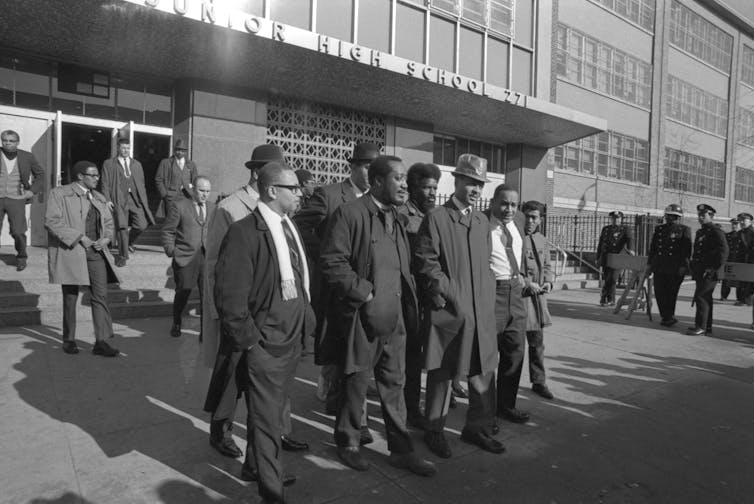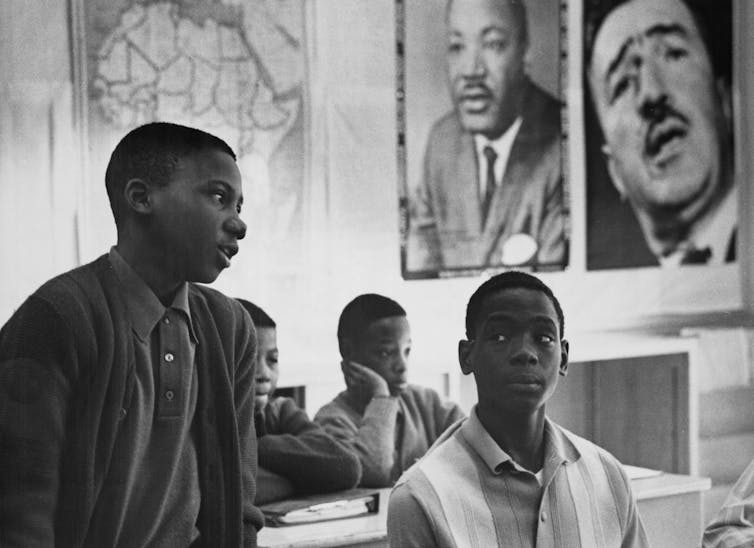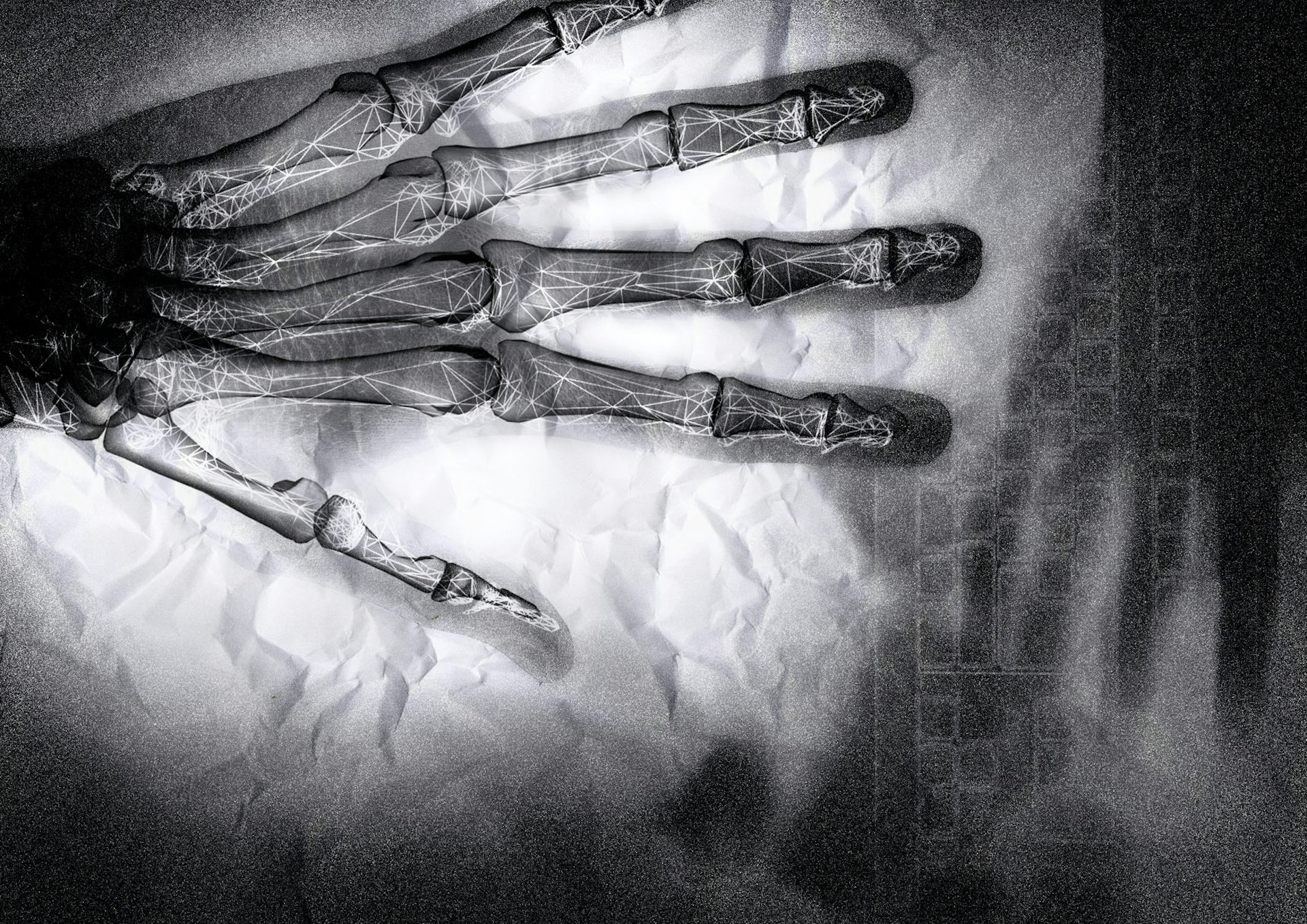Back in the 1960s, the push for parental rights over school standards was not led by white conservat
With control over the Virginia Legislature at stake in the Nov. 7 election, the historic battle over what is taught in public schools remains a priority for both Democrats and Republicans.

A key issue underlying the 2023 Virginia election first drew statewide – and national – attention in a debate two years ago.
During a 2021 Virginia gubernatorial debate, Democratic candidate Terry McAuliffe made a critical mistake that led to his defeat by GOP challenger Glenn Youngkin.
Instead of acknowledging concerns that parents were having over school curriculum, McAuliffe dismissed them.
“I’m not going to let parents come into schools and actually take books out and make their own decision,” McAuliffe said during the debate. “I don’t think parents should be telling schools what they should teach.”
McAuliffe’s remarks sparked a backlash among white conservatives who were incensed that their children were being forced to read books that touched on contentious topics such as racism and sexuality.
In fact, one of Youngkin’s initial television ads showed a white mother who was nearly brought to tears by her son’s anguish after reading about the horrors of slavery in Toni Morrison’s “Beloved.” She said the book should not have been required high school reading.
But while Youngkin and other GOP politicians campaigning for offices from local school boards to state legislatures in the 2023 cycle have hitched their political success to parental rights and banning books deemed offensive, they do not own those issues.
In fact, the very thing that parental rights advocates are fighting to exclude is the very thing that parental rights groups of the 1960s fought to have included: an accurate reflection of the role that Black people played in the shaping of American history and culture.
I know this because I spent a great deal of time studying one of the seminal parental rights movements in American public education for my book, “The Strike That Changed New York.”
In that book, I detailed the 1968 struggle over community control of public schools in the predominantly Black and Latino neighborhood of Ocean Hill-Brownsville in the Brooklyn borough of New York City. There, as in Virginia, parents who felt shut out by the public education system demanded to have their voices heard in determining school curricula.
But at Ocean Hill-Brownsville, it was Black and Latino parents who demanded their right to have a say in the education of their children.
Inside the classrooms
For decades, Black history had been a neglected topic in New York City schools.
In the 1960s, only a handful of textbooks on the Board of Education-approved list discussed the history of African Americans in significant detail. The lack of such material was widely blamed for the disappointing academic performance of Black and Latino students.
In an effort to help those students and improve test scores, New York City school officials launched an experiment to give the mostly minority parents more say in school matters by appointing them to school governing boards. As I note in my book, the new governing boards immediately set out to move the history of Black Americans from the margins of the American experience to its epicenter.
Not everyone supported the changes to what was being taught in the classrooms. When the newly formed board composed of Ocean Hill-Brownsville parents fired 13 teachers and six administrators for trying to block the changes, the United Federation of Teachers union organized several strikes to shut down the schools in a dispute over control of personnel, finances and curricula.
The strikes lasted for 36 school days and affected about 47,000 teachers and nearly 1 million students. The strike ended on Nov. 17 when the state took control of the Ocean Hill-Brownsville school district.

Most of the jobs left vacant by striking union members were filled by a group of nonunionized “replacement” teachers sympathetic to the Ocean Hill-Brownsville parents.
In this racially charged atmosphere, local parents enjoyed an unprecedented opportunity to assert their rights. In the words of one school board representative, they sought to “supply the missing pieces of Black culture,” which would be “the well-spring from which all areas will flow, and counter the total focus in today’s curriculum on the European Anglo-Saxon experience.”
During the strike, Ocean Hill-Brownsville parents worked with the teachers who had defied the union and staffed the schools to help implement an ambitious Black history curriculum. It included lessons on Black revolutionary leaders Denmark Vesey, Nat Turner and Malcolm X.
Their recommendations would eventually influence the direction of curricula in the New York City public school system as a whole.
A constant struggle
This example of parental rights serves as a reminder to those who assume that white conservatives are the only active and involved parents trying to assert their rights.
Indeed, in Virginia itself, Black parents are still having an effect on what is taught in public schools. In one example, the Youngkin administration proposed a set of revisions to the state’s Standards of Learning in history and social sciences that failed to mention Juneteenth and Martin Luther King Jr. Day.
Black politicians and parents criticized those revisions} as “white-washing,” and the changes were later rejected by the state Board of Education.

In a further blow to conservatives, parental activists helped shepherd new, more historically inclusive standards that were approved in April 2023.
The standards state unequivocally that “the institution of slavery was the cause of the Civil War.” In addition, they recognize “the indelible stain of slavery, segregation, and racism in the United States and around the world” and emphasize “the development of African American culture in America.”
Most important, at least to those who agree that parents should have an active role in the education of their children, the standards state that “parents should have access to all instructional materials utilized in any Virginia public school.”
The parental rights movement, then, in Virginia and elsewhere, is not solely the province of the right. As history has shown – and today’s debates over school curricula show – “parental rights” are for all parents.
Jerald Podair does not work for, consult, own shares in or receive funding from any company or organization that would benefit from this article, and has disclosed no relevant affiliations beyond their academic appointment.
Read These Next
Why ICE’s body camera policies make the videos unlikely to improve accountability and transparency
For body cameras to function as transparency tools, wrongdoing would have to be consistently penalized,…
Artists and writers are often hesitant to disclose they’ve collaborated with AI – and those fears ma
Whether they’re famous composers or first-year art students, creators experience reputational costs…
Honoring Colorado’s Black History requires taking the time to tell stories that make us think twice
This year marks the 150th birthday of Colorado and is a chance to examine the state’s history.






